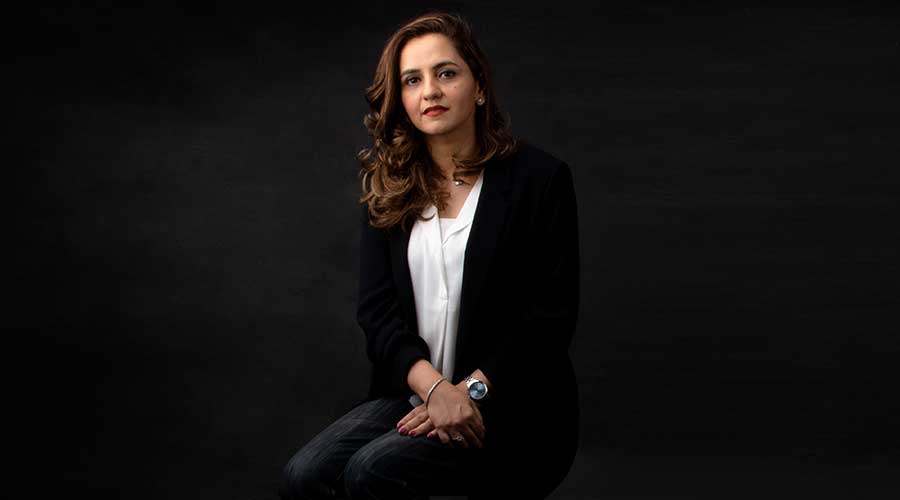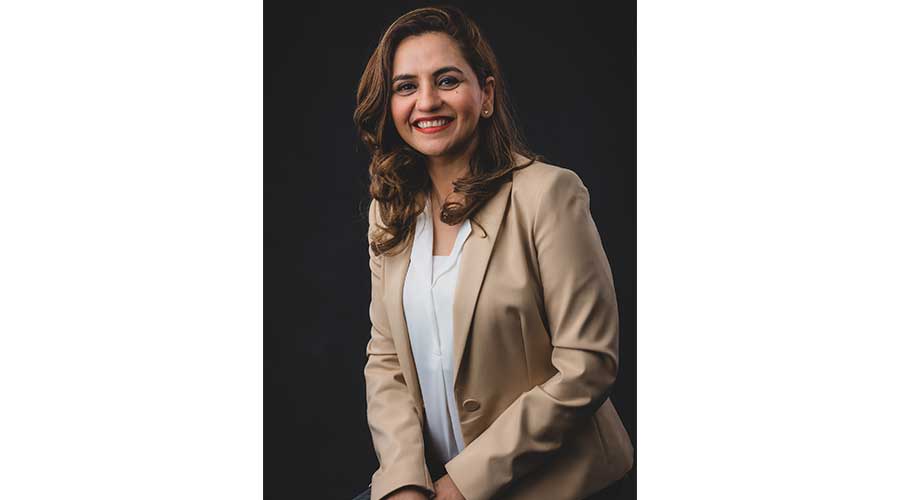Interview: Saira Danish dishes on her journey of becoming a renowned educationalist
Saira Danish discussed bringing change to teaching methods

Saira Danish started her career in the field of writing and education and successfully spent nearly 22 years in academia. She conquered the field by leaving behind a legacy of students who have been superbly excelling in the discipline of Arts and Designs.
At present she is leading the Fashion Design Program at the Imperial Tutorial College and also manages a digital platform, Karachi Collective that aims to archive the glorious artistic heritage of Pakistan.
She is also member of the editorial board of JADEP and advisory committee of the IVS Foundation program. The awe-inspiring educationalist spoke to MAG The Weekly about her journey in the business of education and why it is important to prepare fashion graduates for local market.
What led you to pursue a career in teaching?
I come from a family with a long history in education and writing. My great grandfather, Maulvi Nazir Ahmad Dehlvi, was an established Urdu novel writer, social and religious reformer. My grandfather, Dr Masoom Ali Tirmizi, was the former vice-chancellor of the University of Karachi (KU). My grandmother, Dr Nasima Tirmizi, was a noted marine scientist, writer, and former Dean of the University of Karachi's Science faculty. My mother, Azra Tirmizi, was a college teacher too and currently settled in the US she has taken to some writing assignments which have been published too. So genetically, I have an inclination towards education and teaching.
I have a diploma in Fine Arts from Karachi School of Art, an undergraduate degree in Humanities (History and Political Science), and I have two post graduate degrees: the first one in History from Karachi University (Pakistan) and the second one in Art and Design Education from the University of New South Wales (Australia), so I ended up developing and designing curriculums for a number of reputed art and design academic institutes in Karachi as well besides teaching. My husband, Danish Ahmed, is in the academia too so I decided to pursue a career in education on his advice. He received an offer to teach at a very reputable art and design school, but he was already affiliated with another art college, so he referred me to that position - and from there, my journey in teaching began (well over twenty years from now).
You've been in the teaching business for a while. Have you noticed any changes in students' creative abilities?
I've certainly noticed a huge difference since I started teaching almost 22 years ago. Back then, students used to take a keen interest in the subject and would sit through a three-hour class. Their attention span has become limited, so they tend to become bored easily and quickly. Technology has made things easier for them so they lack the will to explore new possibilities, to ideate and innovate. Obviously, this does not apply to all students. There are some great minds in my class, and I learn from them each day.
Have you modified your teaching methods in response to this situation?
My teaching methodology has evolved over time. I have to change it for a variety of reasons, including the students' mindset and behavior, but there are also other factors that force me to change my teaching methods.
I had the opportunity to teach high school students at the Karachi American School (KAS) for four years after which I went abroad to pursue my higher studies. Whatever I learned there made me question the teaching methods I've encountered here as a student and a teacher. Students in American schools are allowed to make mistakes and learn from them. Later, I went to UNSW, Sydney for my higher studies. Here, the pedagogical methodologies I absorbed from, and consequently implemented at KAS, were reinforced.
So, what exactly have you done to pique students' interest in your subject?
To begin, we must recognize that times have changed and that we must adapt in order to remain relevant. The subjects I teach are mostly theoretical, including History of Art, Contextual Studies in Fashion and Textiles. Often students shun from theory classes, and I completely understand that theory can becoming boring. So, to maintain their interest in the subject, I engage with different teaching methodologies and mediums including lots of exciting visuals through PowerPoint, short documentaries, and sharing of information linked to real life experiences. I engage with history and theory through story telling. Ofcourse, there is a lot of reading involved, oh well! Sadly (and fortunately) that bit has to stay. However, in order to make reading interesting I utilize the Pomodoro Technique. Also, we take a lot of co-curricular trips to acclimatize the theoretical knowledge with real life experiences.

Lastly, would you like to give valuable advice to the students for a prosperous career ahead?
I want to give advice to students and parents both. Let me give advice to parents first: be supportive and allow your children to pursue their interests. In today’s technological age there is scope in every field – they only need to be passionate about whatever they do and you need to be their backbone. Secondly, make your girls independent too, financially and otherwise, so they don’t have to look up to others at the time of crisis. For the students I just need to give the following advice: do whatever you want to do, as long as you are passionate about it and it doesn’t challenge your values. If you follow your passion, money and fame will follow you, they are a byproduct of hard work and passion, not vice versa; and there is no such thing as instant gratification in the real world. There are no short cuts. If you want to be happy with the career you want to pursue then pick the one you are super passionate about!








































